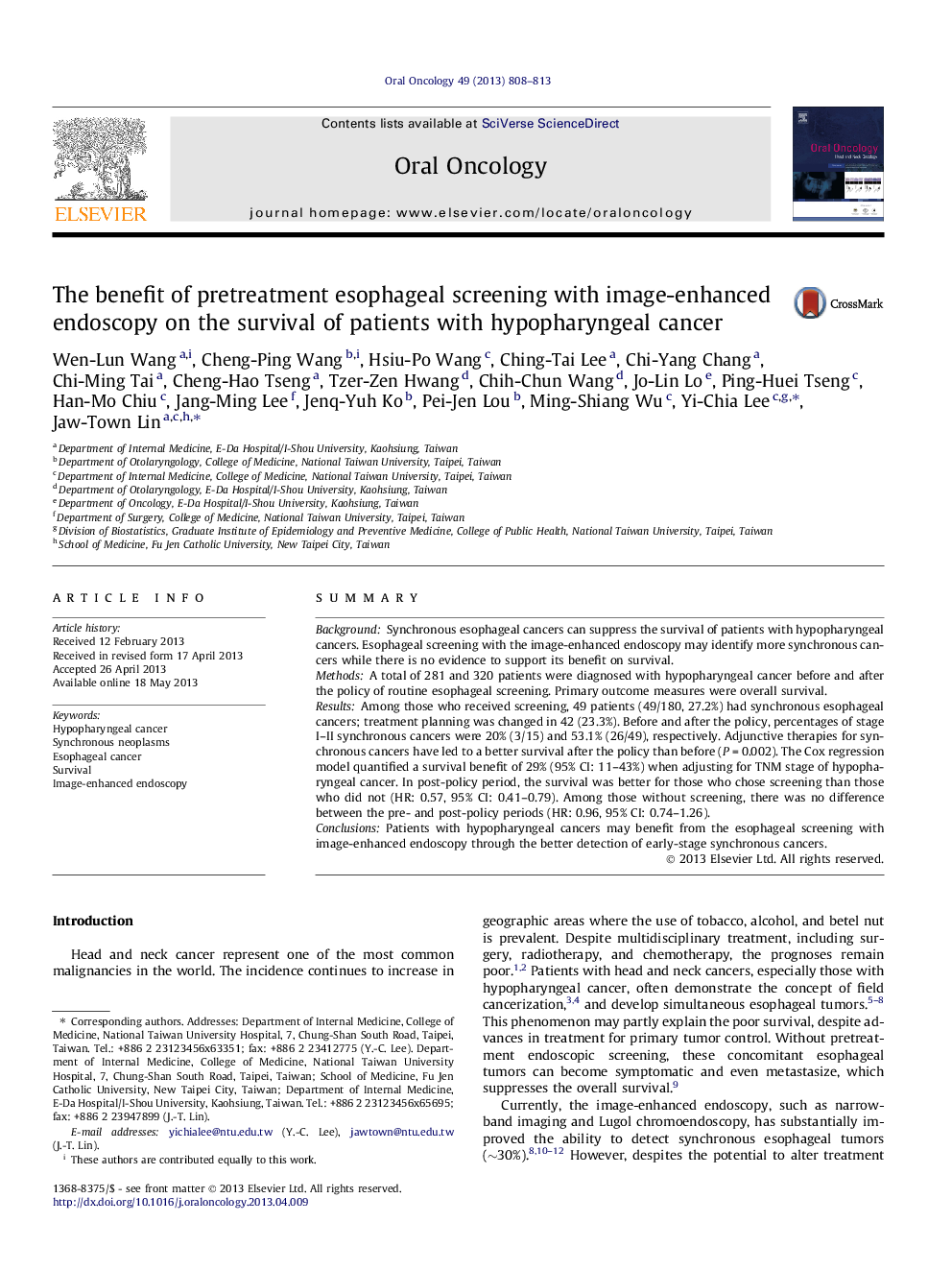| Article ID | Journal | Published Year | Pages | File Type |
|---|---|---|---|---|
| 3164157 | Oral Oncology | 2013 | 6 Pages |
SummaryBackgroundSynchronous esophageal cancers can suppress the survival of patients with hypopharyngeal cancers. Esophageal screening with the image-enhanced endoscopy may identify more synchronous cancers while there is no evidence to support its benefit on survival.MethodsA total of 281 and 320 patients were diagnosed with hypopharyngeal cancer before and after the policy of routine esophageal screening. Primary outcome measures were overall survival.ResultsAmong those who received screening, 49 patients (49/180, 27.2%) had synchronous esophageal cancers; treatment planning was changed in 42 (23.3%). Before and after the policy, percentages of stage I–II synchronous cancers were 20% (3/15) and 53.1% (26/49), respectively. Adjunctive therapies for synchronous cancers have led to a better survival after the policy than before (P = 0.002). The Cox regression model quantified a survival benefit of 29% (95% CI: 11–43%) when adjusting for TNM stage of hypopharyngeal cancer. In post-policy period, the survival was better for those who chose screening than those who did not (HR: 0.57, 95% CI: 0.41–0.79). Among those without screening, there was no difference between the pre- and post-policy periods (HR: 0.96, 95% CI: 0.74–1.26).ConclusionsPatients with hypopharyngeal cancers may benefit from the esophageal screening with image-enhanced endoscopy through the better detection of early-stage synchronous cancers.
